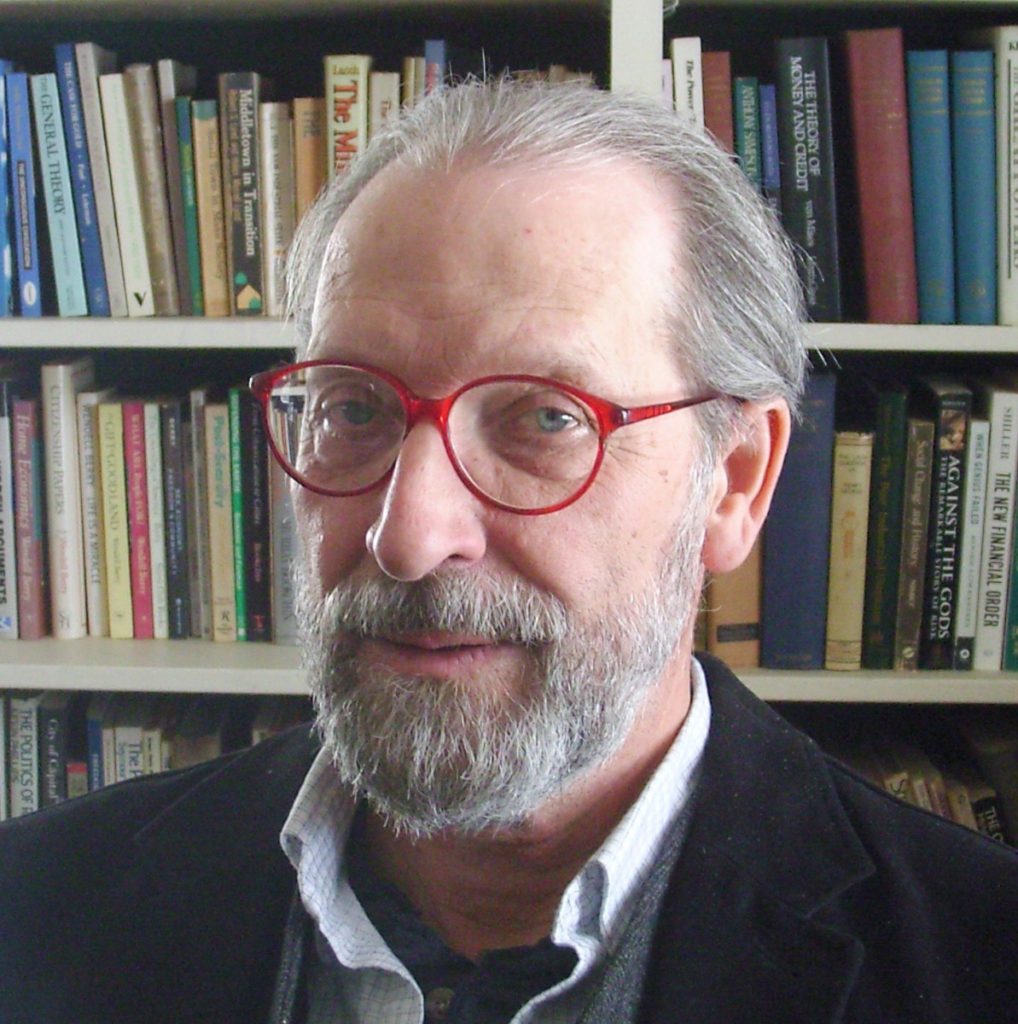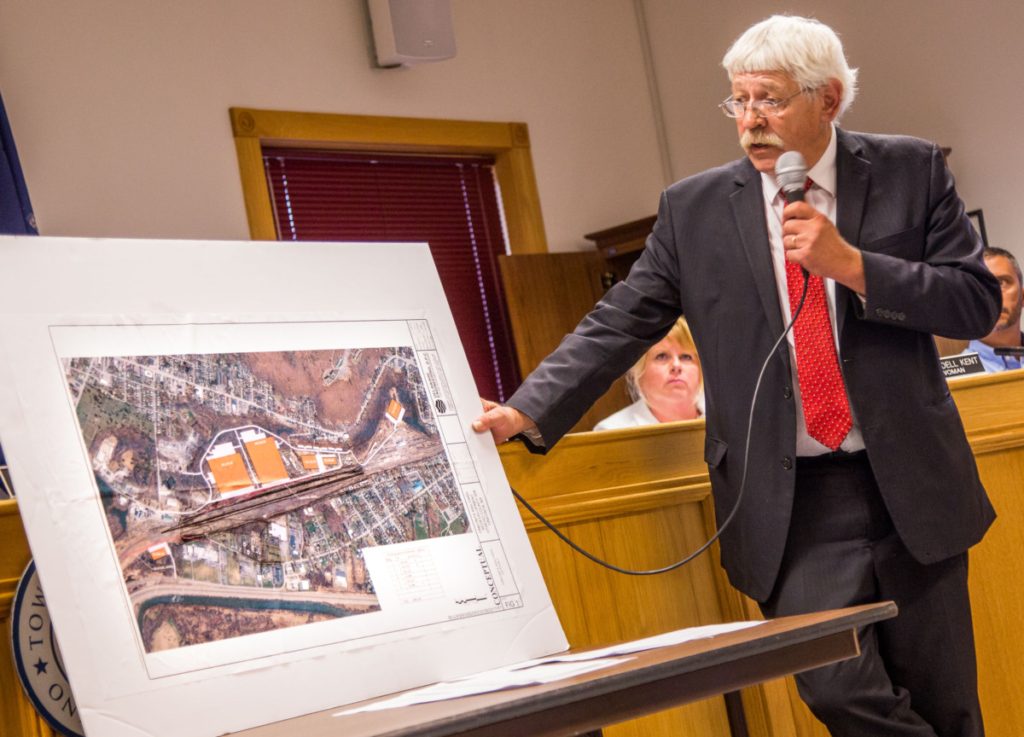Column by Adrian Kuzminski, August 24, 2018
Let’s Take Control
Of Our Energy Future

Recently, nearly 100 people crowded the Oneonta Town Hall to respond to a report by Otsego Now head, Jody Zakrevsky, about the controversial gas decompression station proposed for Oneonta.
The backlash was overwhelming. A long series of speakers unanimously condemned the project and demanded instead a full-scale effort to transition to renewables as soon as possible.
As the speakers pointed out, a myriad of solutions exist to the problem of inadequate natural-gas supply affecting some institutions and businesses in Oneonta. We heard about retrofitting buildings for energy efficiency, replacing gas and oil furnaces with heat exchange systems, and developing local renewable energy sources, including solar and wind.
This isn’t pie in the sky. The Otsego County Conservation Association, for instance, is currently supporting a NYSERDA-funded program, Heat Smart Otsego, to promote the financial and environmental benefits of currently available non-fossil fuel technologies. Check it out.
The speakers also made clear the gravity of this issue.
We’re not just talking about inconvenience, higher costs, or limits to local economic development. We’re talking about a global crisis increasingly affecting us all.
The inability of our local community to do its part in getting us off fossil fuels is symptomatic of a larger political failure which is dangerous to our future. We have mostly relied on someone else to deal with this problem, usually in Albany or Washington.
They haven’t done the job, and it doesn’t look like they’re going to, at least not unless they’re prodded from below.
Yes, our community continues to be divided over energy policy. The editorial in last week’s edition of this paper characterized speakers at the town of Oneonta meeting as “anti-gas true believers.”
There were a couple of strident speakers, as with any large group, but nearly all were thoughtful people pointing out the very real and harmful consequences of using more gas.
Mike Zagata in last week’s paper also misinforms the public by talking about “clean-burning natural gas,” when in fact there’s no such thing. The combustion of natural gas unavoidably produces CO2, a polluting greenhouse gas. Zagata admits as much by worrying if plant growth will absorb the extra CO2.
Even worse, he ignores the seepage of methane from wells, pipes and compressors, which adds another, more potent greenhouse gas to the mix, making natural gas as bad as any other fossil fuel.
By contrast, Zakrevsky, to his credit, bemoaned his fate at the Town of Oneonta meeting, confessing to the crowd his own confusion and lack of expertise. He was hired to promote local economic development, he noted, not to make energy policy. He’s exactly right. He and Otsego Now are not qualified to make energy policy and should not be tasked with that burden.
What was painfully obvious at the meeting was the lack of coordination among capable parties interested in developing a local energy plan. Currently we have groups too often confined to their respective silos – elected officials, economic development people, the local business community, the colleges, the hospitals, the environmentalists, etc.

Each of them is working on their piece of the elephant. What’s lacking is an effective mechanism for combining their resources and talents to develop a plan for all of us.
In my last column I mentioned the Tompkins County Energy Roadmap (Google it!) as a precedent for what should happen here. That initiative began in 2010 as part of a Tompkins County Energy Strategy for 2020. It was first developed as a project by Cornell graduate students.
In 2014, a steering committee was formed composed of individuals “who represent the breadth of experience, interest and perspectives within the community regarding our energy future.” The draft Energy Roadmap was then presented to numerous community groups and has since become the focus of Tompkins county energy policy.
This Energy Roadmap doesn’t rely on hiring expensive outside consultants, who are often ignorant of local circumstances; nor does it narrow options by handing authority to a single, unprepared agency. Instead it utilizes the expertise already found in a variety of existing organizations and individuals.
We may not have Cornell University, but we have SUNY Oneonta and Hartwick College. We have Otsego 2000, OCCA, Citizen Voices, chambers of commerce, the Land Trust, Farm Bureau and Sustainable Otsego, and others. We have individual engineers and scientists and retired executives who’ve worked for multi-national corporations. We have the talent.
Let me suggest, again, that the Otsego County Board of Representatives, in a bi-partisan spirit, is the logical authority to establish an Otsego Energy Task Force. A large, diverse umbrella group is far more likely to develop a comprehensive, viable energy strategy that gets it right, and to do justice to the needs of the community as a whole.
The point is to get key people in the same room and tackle the problem. It’s up to the County Board to make this happen. The time is NOW.
Adrian Kuzminski, a retired Hartwick philosophy professor and Sustainable Otsego moderator, lives in Fly Creek.

